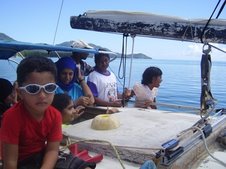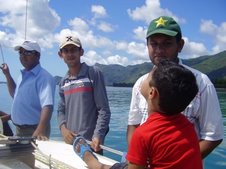Bush Okays "Soft Revolution" in Iran | ||||
| ||||
The "soft revolution" plan allows a propaganda and disinformation campaign against the Iranian regime as well as manipulating the country's currency and international financial transactions, intelligence sources told the paper. The presidential directive also authorizes the CIA to gather intelligence from Iranian exiles and emigrés within the US, an area that is usually the preserve of the FBI. "Iranians in America have links with their families at home, and they are a good two-way source of information," a security source in the US told The Telegraph. The CIA will be supporting Iran's opposition groups and militias including Jundullah, a militant group clustered in Pakistan-Iran border. The group, reportedly affiliated with Al-Qaeda, is part of the Baloch fighters in Pakistan as well as in Iran's Sistan and Baluchistan Province, and has carried out attacks on Iranian forces in the past. Iran arrested 10 members of Jundullah last weekend, carrying $500,000 in cash along with "maps of sensitive areas" and "modern spy equipment". The Telegraphreported in February that the US is secretly funding Iranian separatist groups in an attempt to pile pressure on the regime of President Mahmoud Ahmadinejad. Iran said on Saturday, May 26, it had uncovered spy rings organized by the US and its Western allies and made up of "infiltrating elements from Iraq's occupiers." Nuclear Sabotage A main target of the new CIA campaign will be to sabotage the Iranian nuclear program. "One way to sabotage a program is to make minor modifications in some of the components Iran obtains on the black market," Mark Fitzpatrick, a former senior State Department official, told The Telegraph. Fitzpatrick, currently an expert in the Washington-based International Institute for Strategic Studies (IISS), noted that industrial sabotage is preferable to combat Iran's nuclear program "without military action, without fingerprints on the operation." Security officials told the British paper that Teheran has already been sold defective parts on the black market in a bid to disrupt its uranium enrichment. They blamed such defective parts for an explosion that destroyed 50 nuclear centrifuges at the Natanz nuclear plant last year. Western nations, led by the US, suspect Iran's nuclear program is aimed at producing atomic weapons. Iran has repeatedly defended the program, insisting it only aims to supply energy for a growing population. The Security Council has passed two resolutions since December, targeting Iran's nuclear and military sectors and severely impeding its financial transactions with the outside world. No Strike
Experts say the new CIA campaign has replaced the option of a direct military strike, long sponsored by Vice President Dick Cheney. "Cheney helped to lead the side favoring a military strike," Bruce Riedel, until six months ago the senior CIA official who dealt with Iran, told the British paper. "But I think they have concluded that a military strike has more downsides than upsides." Talks about a looming US strike against Iran gained more credibility recently with a massive military build-up in the Gulf. The nuclear-powered carriers USS John Stennis and USS Nimitz sailed into the Gulf last week along with a helicopter carrier and amphibious assault ships carrying an estimated 2,200 marines. Award-winning American investigative reporter Seymour Hersh has recently revealed that the Pentagon had a special group to plan an attack against Iran that can be implemented, upon orders from the president, within 24 hours. He believes the Bush administration is intent on striking Iran and would do that with or without the UN authorization as was the case with Iraq in 2003. The leaking of the report comes just a day before a meeting in Iraq between US Ambassador Ryan Crocker and his Iranian counterpart. |
Sunday, May 27, 2007
Shameless BUSH
Subscribe to:
Post Comments (Atom)




No comments:
Post a Comment